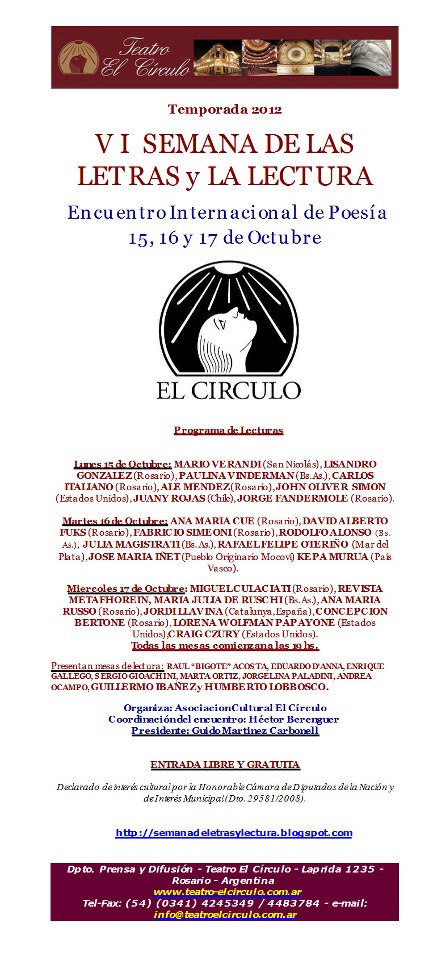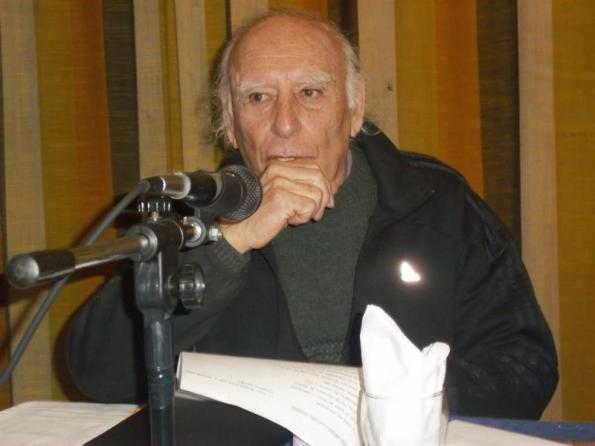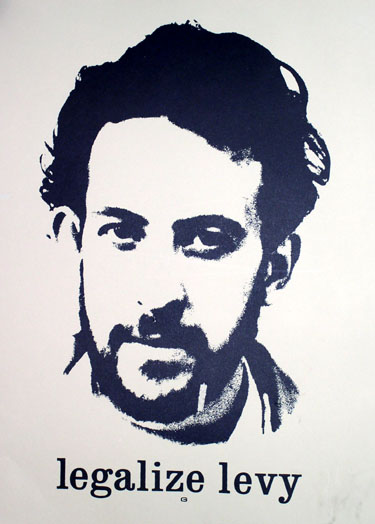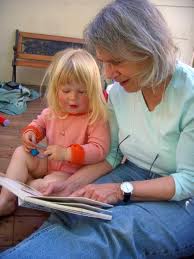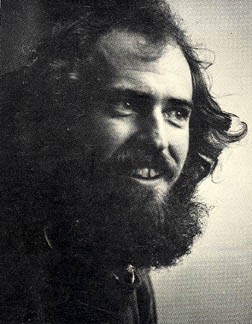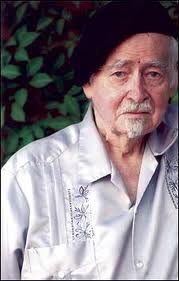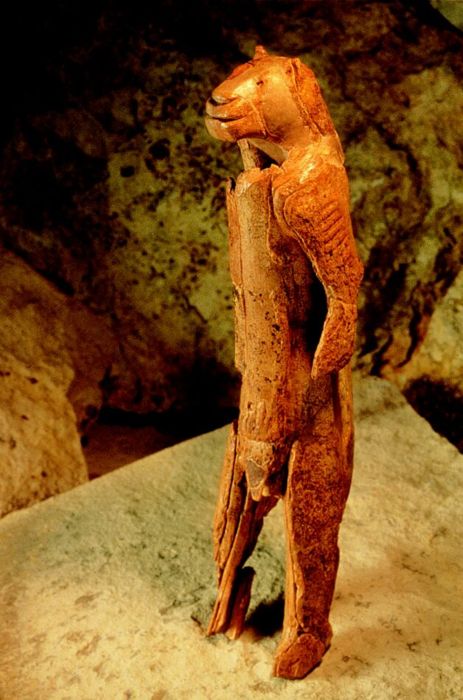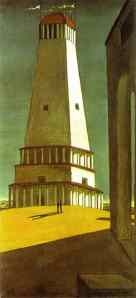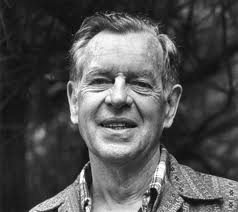3 Baseball Poems
•
High and Outside
I spent years heaving a baseball high and wild
into the August sky. Easy, easy my
dad cautioned me but still I threw my arm out
in a vain attempt to beat gravity and make
that baseball dangle long-limbed and light above
the monotony of Sunday afternoons
and the well intentioned whispers saying that
my time was up, that a growing girl had no
reason to feel the singular ache of a
curveball or spin impossible dreams about
major leagues and baseballs that would cheat the air
landing beyond sunflower seeds and logic
straining the hand with the promise that maybe
the next throw would spiral above all their heads
rise and rise against every law of physics
taunting the sky in an open rebellion.
—Audrey Larkin
•
Stelae
There are stelae at Palenque
that are nothing but names and numbers.
Home runs, strikeouts and stolen bases
for Hunahpú and Hunahpú
who played the sacred game back when
you had to claw for every run
not like today. The losing manager
got disembowelled on the mound
by the knife of the morning star.
I grow older, hombre, or the beardless
mozos striding to the plate grow young.
At 41 I played in Jalatlaco,
place-name meaning “sandy ballcourt.”
The Zapotec lefty decked me.
¿Cómo se dice beanball en español?
And then for once in my mortal
vagabond middle-infielder’s career
I got good wood on the pelota,
it sailed toward the sacred ring,
reached the ancient wall on one bounce.
Hunahpú and Hunahpú
played ball against the gods
in Xibalbá. They lost.
They got their heads cut off
and turned them into baseballs
and stuck them on a tree.
A girl ate them. She had babies:
Hunahpú and Hunahpú.
They finished second two years running.
They smoked the candles of the underworld,
came back to challenge in the playoffs.
They used a mosquito in center field
to steal signs. They stole them blind.
They sacrificed, they had the long ball,
they had defensive magic. They threw
the change, they threw the split-finger.
You remember the sequence from Game Six.
The Mayans carved the standings
into limestone. Learn to interpret
the statistics of heaven,
these cyclic fractals of the endless game.
—John Oliver Simon
•
Twins
Jefferson practices a big windup
from the pitcher’s mound,
Giants cap flopping over eyes
as he deals a southpaw
sidearm fastball into
my old
gray glove.
Gwydion swings an imaginary bat > at home,
momentum whirling him
laughing into a
batter’s box heap.
Jefferson continues pitching
despite the prostrate body
next to the plate
While I crouch
spearing
Jefferson’s often errant fastballs,
Gwydion crosses his hands behind > his head,
lying there gazing skyward,
“Dad, did you know
clouds are like castles?”
Ball into glove
Pitch punctuation,
“Dad, was that a strike?”
“If the wind changes their shape, > even dragons
can’t see them.”
—Jeff Brain
Aldebaran Review
Fall 2012
•
New Poems
Aaron Counts
Tobey Kaplan
Mariela Griffor
George Kalamaras
Bill Vartnaw
Laura E. Davis
Michael Daley
Linda Lancione
Crash
Many nights, as a boy, I woke to the sound of crashing.
My father, an insomniac, found solace in our unfinished
basement—a second-hand couch and a red-felted
pool table. He quieted his mind by shooting 9-ball,
something calming in the precise geometry required
to rattle a ball into a pocket with a soft thud.
Lying in my bedroom above, I could almost see
the pool balls spin across the felt and careen into
each other under the controlled force of my father’s hands.
His brother lived in that basement some months,
between jobs or wives. He slept on the worn couch,
coming upstairs to the fridge when he needed to
fetch beer or food. His laugh rasped from too many
cigarettes when he cracked jokes during the day,
but at night, drunk, the laugh often turned mean.
One night his girlfriend stood up to the bullying,
and their fight spilled upstairs, and instead of fetching
beer from the kitchen, my uncle came after a knife.
My father lay awake in his room, listening.
I squinted into the blinding bright
of the kitchen, and watched my father move
his body between the blade and a woman he didn’t know.
He gripped the thick shoulders of his only brother
and shoved hard, flinging the large man into the pantry.
The force of his collision shook soup cans loose,
and they rattled to the floor and spun towards
my uncle heaped on the linoleum. Wordless, my father
walked over and stood above his brother, paused,
then pulled him to his feet. The fight was over,
and they never spoke of it again.
On my own sleepless nights I miss my father most.
Insomniac is a lonely profession, so I haunt the shadows
of quiet rooms, looking for some life with which to commune.
I sometimes end up in my son’s bedroom, sitting on the rug
next to his bed. I wrap my fist around his and watch
his chest fill with breath. The crickets he keeps to feed his
gecko chirp, the cage clicks as one leaps a failed escape
through the plastic wall. I hold my son’s hand in the quiet,
and hope I, too can pass on what most of us only learn
the hard way: who to pull close, and who to push away.
—Aaron Counts
Another World
Before the fog lifts going up the hill
on my run home up the street
just over the curbside looks like a stick
but something makes me stop
because I saw it differently maybe a lizard a skink a gecko
with its tail cut off a few blood spots it was alive
and because I once had a leopard gecko
and often dogs chase lizards on local trails
I am trying to figure out
a lost pet or a feature of our landscape
I find a couple of candy wrappers
and carry the gecko home
put some rocks in the cracked yellow recycling bin
a hiding place a low plastic dish for water
use the worm scraps for insects
a little rug of mud leaf dry grass mulch dirt and compost
and as I’ve planned to take it the Vivarium later
so they could identify my reptile and what it needed
but I then I leave with the dogs
come home to find it
not hidden under my crude cave as it was earlier
in the sun no longer moving at all
I pull out the pitchfork find a patch of dirt I can stab
and turn over as I’m looking at it now for the first time really
gecko limbs pulled back against its body
gray green white belly design
alligatored scales diamond shaped head
eyes open to another world
—Tobey Kaplan
Exiles
Chanco had endless rows of white houses made of adobe
with thick terracotta shingles.
Old eucalyptus trees, taller than 50 feet, formed a natural barrier
between the Pacific Ocean and the village.
The people made a living producing wine and cheese.
As a child I ran through the eucalyptus forest to the ocean
in a race with my half sibling.
Small roads of red clay covered by generations of fallen leaves
made for a cushioned walk for our sandals and bare feet.
I always won all the races.
Then, on the ocean, there would be another race
to get rid of our clothes
and be the first to jump into the water.
My mother would open a basket filled with bread, hardboiled eggs,
cheese, blackberries picked by our own hands
and soda, spreading an old yellow tablecloth out on the sand.
Meanwhile Clemente would cut the watermelon he carried
from the house to the beach.
In Santiago things were different.
The day of the Coup, Mr. Monzalves visited us.
He sat on a sofa in our living room beneath a print of Picasso’s “Guernica”.
My grandfather occupied one of the loveseats.
Later I came to know that Mr. Monzalves worked for DINA
(National Department of Intelligence).
My grandfather did not talk about what Mr. Monzalves said,
but it was clear that he knew that my grandfather
was a sympathizer of Allende and that he had come to deliver a warning.
Just before I left Chile the last person I met from the Front,
in Santiago was my commander.
His real code name was Wolf.
I told him I was planning to leave the country because I could not
avoid the surveillance anymore and my good friend,
the lawyer Insunsa, had arranged for me to go to Sweden or France.
The Swedes were fond of Latin America’s cause of liberation,
he had said, and they had been receptive to Chileans
from the beginning of the Coup.
Sweden is too far, go to the South, I can’t, my family lives there,
I told him.
He wanted to schedule a last rendezvous before my leaving.
I explained that it was exhausting to get to him in my condition.
I already had my visa and a plane ticket.
Still, I finally agreed to meet, changing between different
subway lines, moving to a taxi and then to a bus to avoid being followed.
I risked everything so that Wolf could make one last effort
to get me to stay.
He never appeared. I had wanted, at least, to say goodbye.
I left for Sweden on October 24, 1985, five weeks after
my daughter’s father died.
Spring was beginning in Chile, as Winter was in Sweden.
It would prove to be the coldest winter in one hundred years
with a mean temperature of -27.2°C in Vittangi.
—Mariela Griffor
A Mother Thing
After I was settled when I got “home” from the hospital
there was a bed and a baby bed beside it, and a letter
from my mother that was forwarded from the refugee camp.
In the letter my mother said that she had missed the bus
that would have brought her from the South of Chile to the airport
to say goodbye. Somebody told her that I was leaving.
She had read about J.’s death in the newspapers. More
than 1000 people came to his funeral and the riots
that followed were covered on national TV. Reuters smuggled
pictures out of the country and in the archives of the Agency
that I would read 20 years later it would say: …the case of J’s may
turn into another scandal similar to the case concerning
the death of the three “degollados”.The last paragraph
of the letter said “I hope now when you are a mother yourself
you can understand your own mother a little bit better.”
I couldn’t answer her. Not because I didn’t have anything
to say but because it was so hard to say it. I wish I could have written
something to her at that time to bring us closer together.
But I still couldn’t think clearly. It would be a long time before I could.
—Mariela Griffor
If Not Perfect
You said nothing about the stain on the cover of Vallejo’s Trilce.
You hand me an ostrich feather as if I had never been truly alive.
We end up dying over a lunch of buttered bread.
I collide with my insides and finally get the joke.
But the table shakes as if the earth had a friend.
You and I have known one another’s toe in a different shoe.
Walk like an animal and spoon me your source.
I could investigate finishing my life by walking room to room.
The way your singular kindness covers my infatuation with all things brassiere.
The sound of midnight trains has always been erotic in their long cat-crawl and dominating sleep.
—George Kalamaras
The Vicenarian or My Twenties So Far
My therapist says, “Tell me about your twenties.” At twenty I’m born
again. Bush vote. My heart turns purple and my insides become composted
totems of faces I’d forgotten. Grandfather starts dialysis. Get homesick
in St. Lucia while eating fresh mangoes. Buy my first vibrator. Men fly
planes into buildings while women inject collagen into their lips. My hair
is short and blonde. My uncle gets Parkinson’s disease. Sleep with five people.
Turn twenty-one. Do a shot called a Red-Headed Slut. Lock my keys in the car
five times. Diagnosed with ADHD. Bush says, “Mission Accomplished”
while standing on a boat. Have sex with a woman. And with seven men.
My heart is an onion, a flaky and potent organ of flavor. Taste-tongued.
Get my first cell phone. At twenty-two I have a threesome. Reality television.
My heart thumbs it to Kansas City without me, leaving a see-through escape
route between my sternum and spinal cord. I stop praying. Forget that I love
camping. My friend Jes punches a guy in the face outside of a bar. He spits
his blood on my shirt. I tell my brother I’m queer. Mom starts getting manicures.
Turn twenty-three and have an affair with a Marine. Takes me to Washington
where he cries at the Vietnam Memorial. Date a Buddhist who drives a Honda
Civic Hybrid. Finish college and buy lots of hemp products. Get engaged.
My gynecologist tells me I have HPV. I think about dying. Get married.
Twenty-four. Heart becomes one million avocado pits skewered on BBQ sticks,
suspended in jars, the roots leaping away from the water. Get an intrauterine
device. Vote for Kerry. Get a job selling home refinances. Stop eating meat.
Gain ten pounds and decide to have an open marriage. Get a boyfriend.
And a girlfriend. I start taking Welbutrin again and find my first gray hair
which makes me smile. My grandfather has a kidney transplant. I turn
twenty-five. Hurricane Katrina. I lose my job and start temping. Ian Frazer
develops a vaccine for cervical cancer. Then twenty-six. Tell my mom
I’m getting a divorce. I get my first apartment. Buy my seventh vibrator.
Heart develops a sense of smell, scoops up grubs in the topsoil, and seeks
quick fixes of musty armpits and the undersides of garbage can lids. Decide
I’m an atheist. I pose in a pinup calendar for charity. Twenty-seven. I am
alone for the first time in six years. Heart learns how to flap prophetic,
predict the weather and spot criminals behind brick buildings. Organize
information into death or almost-death and I have my first panic attack.
I do not wear Crocs. My uncle dies. Fall in love with an Italian. Obama vote.
Twenty-eight. Michael Jackson dies. My heart is a shoe that fits both your feet,
toes curling inside like a newborn with enough space for sighing. Get my first
teaching job. H1N1 vaccine. Grandpa dies in his sleep. I dream about him
whistling. I remember I love camping. Stand inside a family of Redwood
trees and kiss the Italian. At twenty-nine listen to Ginsberg sing Father Death
I’m coming home. I learn that we are always gray with fragments of color,
not the reverse. My heart resting on the kitchen table is a machine gun.
—Laura E. Davis
first published in SPLINTER generation and reprinted by permission of the author
Kiitos, Sylvi
kiitos, the one word in Finnish I learned there
“thank you” Aunt Sylvi taught me context in 1970, Sysmå
my grandmother’s & Aunt Hilma’s sister
we did not speak each other’s languages
whenever I looked bored,
kahvi?
coffee always came with sweets
extending the familiar, (American)
she showed me “Joy” liquid
she went to the well
cranked up the heavy bucket
poured water in a big pot
on her wood stove
when the steam started rising
she applied Joy
then her dishes
it took the grease right off
clean
(like after a sauna)
of course, Veikko, her son
who lived next door
had all the modern amenities
she preferred to live as she always had
I’m learning that now
as I fail to upgrade this damned
& wondrous computer
—Bill Vartnaw © 2011
•
The Great Heart
The awkward boy,
his fingers open, sweeps hands
to brush past stray bees.
He cuts a path through wheat
beyond the other children
to keep them safe—
master of gestures—
the great heart is the taste of pears,
you’re outside, a bee,
heart that breaks its habits
when they disappoint, or
so it was in the last ice age.
—Michael Daley
The Taste of Blood
We grew up in gardens, we grew up
with hammers lying around.
At a family barbeque,
I bit you on the shoulder,
you a toddler, younger than my granddaughter.
The even teeth marks, tiny square dents
filled with red. Then the fuss.
In fourth grade, Cheryl Young slept over
and we played with your little prick.
The next day, Mom moved your bed
into the dining room. How was that,
to camp out where they carved the turkey?
No wonder when they got old
you took over the whole house.
I want to see you again, my brother,
I want to lay my hand on yours
at least once before it’s over.
But I’ll never forget that wild joy,
sinking my teeth into your tender flesh.
—Linda Lancione
Copyright © 2012 Aldebaran Review. All rights reserved.
I’ve decided to move the locus of my Web activity back to tghis blog. I’ll start by rescuing some of the terrific work I published last year in the brief virtual existence of Aldebaran Review (in print in Berkeley lo these 40 years ago and more). Enjoy!
In October, 2012, I spent a week travelling with a poetry circus, giving readings in Spanish in Rosario, San Nicolás and La Plata, Argetina, all along the shores of the mighty River Paraná. Now Lorena Wolfman and I have edited the voices of 21 poets who read those nights and caravanned those days into a special on-line issue of Aldebaran Review.
The poets range across a half-century, from Alicia Salinas (1976) ,a tough-minded glamorous Rosarina who for my money is the best young poet in Argentina, to Mario Verandi (1926), the living embodiment of San Nicolás, to the tender veterans of the Malvinas war , Martín Rabninqueo and Gustavo Casi Rosendi (both 1962), our hosts in La Plata.
This marvelous outpouring of poetry is happening out in the provinces of Argentina, which means it doesn’t count in the inevitable hierarchy of reputation closed on itself in the black hole of Buenos Aires. Read it here first.
Lorena Lobita and I translated everything into English. There arte bios and always the voice of the river. Also poems in French and Basque. I don’t think I can bring the whole site over here, but I can offer a little teaser and a link. My compilation is at <www.aldebaranreview.com>, while Lorena’a far cooler format is at <http://poetasjuntosalrio.blogspot.com/>.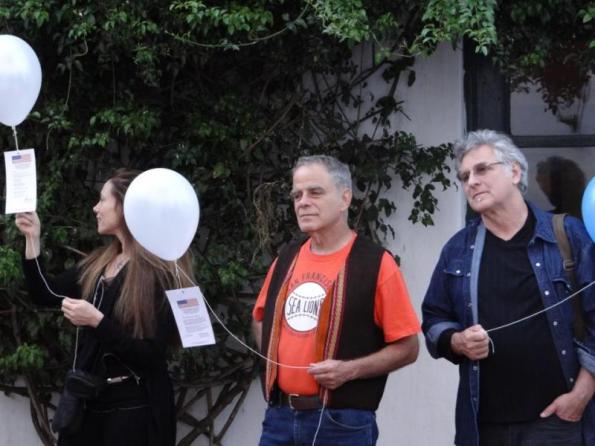
Here Lorena, Pennsyklvania poet Craig Czury and I prepare to launcm helium balloons, each one affixed with one of our poems and our flag, into the skies above San Nicolás from the courtyard where Argentine independence was proclaimed. As well, rapid, seamless Stéphane Chaumet joined us from Paris, sincere Kepa Murua from Basque Country, and Juany Rojas, who danced with Lady Death, from the Atacama desert of northern Chile.
Alicia Salinas
Gallina ciega
Antes de comenzar el juego conoció el fulgor.
Pero le quitaron el brillo, las brasas. Se reveló
entonces la ajenidad de las aureolas: la luz
no es de nadie, la oscuridad
de todos.
No importa quién vendó, de dónde
la recomendación de la tiniebla.
Es hora de (vol) ver.
Esta gallina se rebela a la ceguera, al titubeo.
Otros fuegos se esparcen en la noche.
Doloroso tendal traman los pasos,
y sin embargo a su través se atisba
el final del túnel.
Hoy nadie puede la indiferencia
ante semejante voluntad
de abjurar La Sombra.
Blind Hen (Blind Man’s Bluff)
Before the game began she had known splendor.
But they took away the shine, the spark. Revealing
the otherness of radiance: the light
belongs to no one, the darkness
to us all.
It doesn’t matter who tied the blindfold, where
they got the idea of lightlessness.
It’s time (again) to see.
This hen rebels against blindness and groping.
Other fires are scattered across the night.
Footsteps weave a painful way
and yet through it all the light
is glimpsed at tunnel’s end.
These days no one can be indifferent
before such an act of will
abjuring The Shadow.
(Translation: John Oliver Simon & Lorena Wolfman)
Mario Verandi
Los hijos
De acá a 50 o 60 años
algunos cometas regresarán dócilmente
los ceibos habrán florecido otras tantas
veces en San Nicolás de los Arroyos provincia de Buenos Aires
no estarán mis huellas
de animal perplejo
indeciso frente a las rutinas menudas de la vida civil.
Para ese entonces
mis hijos también
ya serán viejos
sumidos en la contemplación de sus enfermedades iridiscentes
y la pluralidad de los mundos.
Tal vez salgan al silencio del espacio
a mirar hacia acá
hacia esta esfera doliente
donde el padre yace
a salvo del fracaso.
Children
50 or 60 years from now
some comets will return docilely
the ceibos will have flowered a number
of times in San Nicolás de los Arroyos province of Buenos Aires
there will be no trace of me
the perplexed animal
indecisive when faced with the small routines of domestic life.
By that time
my children too
will be old
lost in the contemplation of their iridescent illnesses
and the plurality of worlds.
Perhaps they will go out into the silence of space
to look over this way
towards the pained sphere
where their father lies
safe from failure.
(Translation: Lorena Wolfman)
A shoutout at Montevidayo to my translations of Uruguayan poet Eduardo Milán recently published in HOTEL LAUTREAMONT from Shearsman:
A beautiful new anthology has found its way to my door. Collecting Life: Poets on Objects Known and Imagined, edited by Madelyn Garner and Andrea L. Watson, from 3: A Taos Press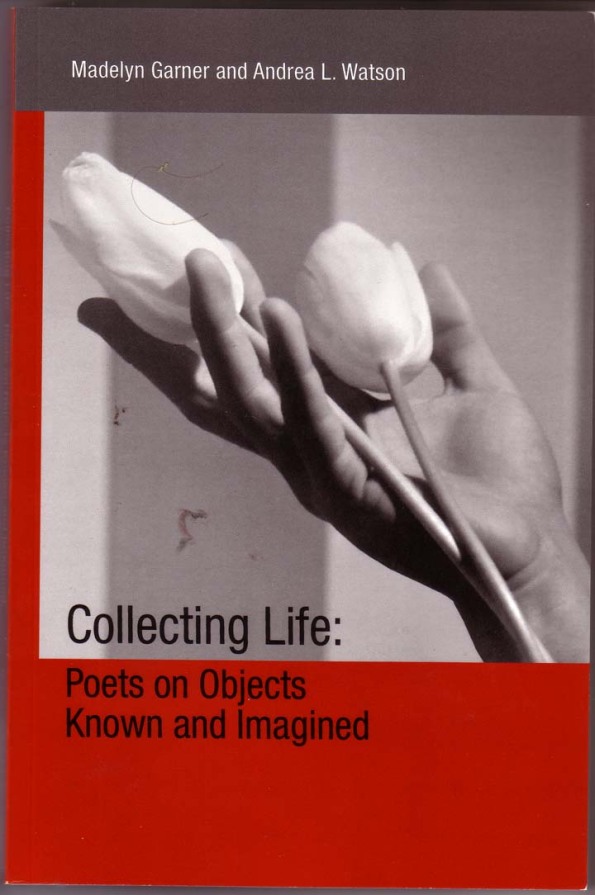 : poems about hoarding, hiding, saving, buying, clutter, spiritual materialism and material of the spirit. Not a whole lot of big names among the 88 poets: Lyn Lifshin, Denise Duhamel, Gary Young, CB Follett, Jane Hirshfield, Kimiko Hahn; just a lot of really good writing.
: poems about hoarding, hiding, saving, buying, clutter, spiritual materialism and material of the spirit. Not a whole lot of big names among the 88 poets: Lyn Lifshin, Denise Duhamel, Gary Young, CB Follett, Jane Hirshfield, Kimiko Hahn; just a lot of really good writing.
My own poem included, “Isla Negra,” is about the frenetic and obsessional collecting activity of Pablo Neruda.
Here’s a mini-anthology of the six Neglected Poets I have profiled so far on this blog.
*
Edward Smith (1939-2003)
d.a. levy (1942-1968)
Donald Schenker (1930-1993)
Rebecca Parfitt (1942)
Charles Potts (1943)
George Hitchcock (1914-2010)
*
Send me your nominations for the next batch. Already in mind: Charles Foster, Joe Gastiger, Mary Norbert Körte, Jack Grapes, Morton Marcus, Flora Arnstein, Sharon Doubiago, and, because Jack said “thee and me, my friend!” Jack Foley and, naturally, myself. Send dates, bio info and poems or URL with your nominations, if you have ’em.
*
*
Edward Smith (1939-2003) was born to missionary parents in China, and
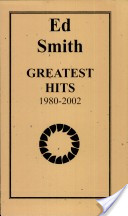
There is no image among the .jpeg's supplied to me in all good faith by Google for one of America's greatest poets, Edward Smith.
mastered Vietnamese in about five minutes when the CIA sent him in-country in ’63. Ed became fluent enough to startle the eponymous Bea of Bea’s Wok ‘n Roll in DeKalb, Illinois, with his proficiency four decades later. He was spirited out of Saigon overnight on the heels of the assassination of Ngo Dinh Diem. Ed Smith was the dominant hippie poet in 1967 Seattle in a scene that included Charlie Potts, then underwent an unfortunate conversion conjugal with whiny first wife to childhood Evangelical Christianity which cost him thirty years of poetic work that would have made his name. Smith returned to the craft around the millennium. He approached Potts and began to rev up his axe once more, drove all night to DeKalb in August 2003 to bore Rebecca Parfitt and me to tears ranting against nefarious and irrelevant Roethke while finishing her Bailey’s Irish Cream, appeared at the Walla Walla Poetry Party that fall and wowed ’em, and got the flu Xmas 2003 and died because he didn’t have health care. Ed Smith is a rapid, submarine didactic poet with great expanse and large male pattern blindness. Smith taught Potts the art of the assonant rant, or maybe they both learned it from Dorn. This is a late poem, from his comeback tour, for his older daughter.
***
Father & Daughter
*
for Lindsay
*
Divina & Heather Ferreira,
her aunt Shani Benesh
& boxes
of mostly naked Barbies
Jim Buerster’s mouth reflected
in a Matthias Grunewald picture
printed from the Internet in black & white—
Lindsay gripped it in her hand
to lay on Mrs. Kuebel
before the bells
even years after the ultrasound
showed us a girl growing
in Sindy’s tummy
###
I’m not a real man
I tell my friends sometimes
just to be funny, I don’t
golf, fish, hunt
I detest action movies
dislike fast cars,
in fact, all cars
adore quiche, salads
yellow cheese, red wine
oboes & romantic comedies
###
and yet I am a man
in the wash of a daughter’s love
frantically clinging to my arms
when the answers don’t come out right
& she cries out, “skip, skip!”
to get me to move on without an answer
evading the unpleasantness of
not knowing everything at six
###
& Lindsay, when you come some-
day to lock horns with the truth
remember the closeness of a man
who pulled you up
through fights, colds, changes
of schools, friends, your
body rounding to all
things full & sweet sixteen
for when a boy will zoom
you outa here, maybe
in a white Mustang
as in Suzy Bogguss’ “Cinderella”
your nighttime fears forgotten
in the prospects of another
young man’s toast
and yet
before you finally go
remember the man
who pushed you high
on swings
& whose curved arm
welcoming yr little
female nature to his heart
was all you knew
Edward Smith
***
***
d.a. levy (1942-1968) was understood among the poets
of the mid-to-late 60’s underground to be the most American important poet of his, and my generation. A Cleveland boy who graduated high-school entirely without distinction — his one entry in the 1960 Rhodes High School yearbook is the phrase “Hey, You!” — levy took it amiss that Cleveland didn’t have a world-class poetry scene and undertook to create one via mimeograph and coffee house. Not surprisngly, levy was busted by the Repub D.A. for reading obscene poetry to minors (the 16-year-old chick in the second row was bugged, and I do hope she’s had a happy life). Allen Ginsberg came to levy‘s aid in the grand benefit reading. levy was a telepath, a pain freak, chained to Cleveland as a Dog Warrior ties himself to a stake on the battlefield. His most important work is the North American Book of the Dead. The weight of the evidence suggests that levy sat in lotus the day after Thanksgiving and blew his brains out.
***
turn away
i have nothing to say
in all this darkness
everyone runs from
words that carry light
from the closed doors
of the mind
i have nothing to say
why don’t you just sit there
and die
a little
everyday
waiting for some naive
child carrying the
crippled bird of yr love
to say the things you are
afraid to say & perhaps
in a millennium or two
you will begin to understand
that naive child
was you
and you murdered him
in the darkness
d.a. levy
***
***
Donald Schenker (1930-1993) had a poetic career of sorts in the Bay Area, but is now forgotten except by a few deep friends. Don came out West from natal Brooklyn, married blonde artist Alice from Wisconsin, resented Ferlinghetti and Rexroth, started a successful business (the Print Mint) and practiced his chops in recurring jazzy neurotic uncommanding poems until the day in 1985 when he got the diagnosis. Don sold the business and had eight years as a great poet. He spent as much time as possible in a cabin up in Siskiyou County where he wrote all his best work — Up Here, High Time, and The Book of Owl. He got to be a grandpa before the cancer took him away. Don Schenker and I were close the last two years of his life, and I treasure that.
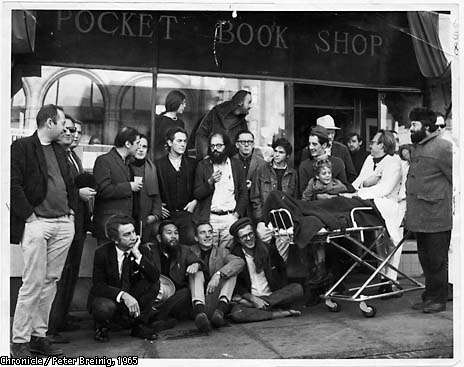
Claim to fame: Don Schenker's the rube standing on the far left in this iconic 1958 portrait of SF Beat poets. Shig is seated, and Lew Welch and Peter Orlofsky; among those standng are David Meltzer, Allen Ginsberg and Richard Brautigan (in the white hat).
Jorge Luján, the músico ambulante, asked me for some poetry to read at bedtime, “algo fresco, lúdico” and I gave him Schenker; Jorge’s deft translation of most of Don has had the same curious unsuccess in getting published in Argentina as Scenker has had posthumously here. Dorianne Laux, happily not a ngelected poet, will tell youhow good Don was. Schenker‘s late poems are his good as Robert Creeley’s early poems, while his early poems are as empty as Creeley’s later work. That’s bad career timing.
***
Noon at Bear Meadow
*
We were on our separate ways
to the meadow, the bear and I.
We were going to meet there.
*
He was going to stand up
and open his arms
and I was going to walk in.
*
In the middle of the meadow,
in the middle of the day,
nobody there but him and me.
We thought we’d try it.
*
But something happened.
He got there early and didn’t wait,
and I came late.
*
He was leaving as I arrived
and never looked back.
I stood and watched him go
and never called out.
*
I went back every day after that
for a long time.
Then every month, then every year.
*
In the center of the meadow at noon
I’d sink down into the grass,
close my eyes in the bright sun
and think about how close we came,
the bear and I.
Donald Schenker
***
Here’s my own elegy for Donald Schenker, written after we went out for Vietrnamese in downtown Oakland and first published inPoetry Flash.
After all I’m neglected too (“I’m Nobody! Who are you?/ Are you Nobody too?”) In her lifetime, Emily was neglected. Now she isn’t.
*
ALL OVER THE PLACE
*
—for Donald Schenker (1930-1993)
*
Don says there’s poems all over the place,
it’s practically embarrassing, and I nod
without enthusiasm, driving into downtown
Oakland thinking yeah, those two pigeons
squatting on the blue-gray sign HOTEL MORO,
how the part of it that’s a poem could fall out
between the word and the bird, or the word Moro
all the way back to the reconquest of Spain
and all the bloody hemisphere ending up
on this block I don’t care if I see again.
*
Don says he could just stop anyone
and look at them, they’re all so deep
and beautiful, and I say what’s interesting
is the stories they all carry around
stranger than fiction, stronger than truth
all these gente waiting to cross the street
each one forgetting their great-grandparents
each one forgetting to tell their children
and I’m no novelist, I can’t move a
character across the room, much less two guys
to lunch at a Vietnamese place on Webster.
*
Over bowls of translucent noodles and odd meat
Don says he always felt like the other poets
were the big boys, and I see how the grand
famous names of his peers, now pushing sixty
have turned into the padded artifacts
of their own careers, while Don’s obscurity
has kept him fresh and sweet, and Don says
he loves his tumors, the big one that hurts
in his left hip, the one that’s hammering out
among sparse hairs inside his baseball cap,
and though it’s his own death that gives him truth
I’m stuck in my heart without any words
while poems in Vietnamese are fluttering up
from all the restaurant tables around us
and escaping into so much empty light.
John Oliver Simon
*
Rebecca Parfitt (b. 1942) is my girlfriend, which raises the nepotism factor. It occurred to me there were no women on my list. Most of the best student poets, aged now about 3 – 52, I have worked with, are women. Maybe women don’t typically follow the Smith-levy-Schenker trajectory of the ambitious but truncated career. Becky‘s path is more typical of women: she never made a serious effort to establish a poetic reputation, has written a few gleaming poems in a life devoted to service to battered women, participates in a terrific writing group in DeKalb (whose dominant poet — she will hate that formulation — is Joe Gastiger), publishes occasionally, and is basically fine with that. Unfortunately, WordPress’s debvotion to the left margin won’t allow me to reproduce the elegance of how this poem, written upon seeing her first image of the being who became her granddaugher Lila, spreads pleasingly across the page.
***
After the Ultrasound
*
for my grandchild
*
All night it rained softly
all night the seals pop their shiny heads
up out of the water and look softly
at me
We lean over the boat railing
Look, seals! The children swimming!
Look!
*
I will bring you to the water
I will sing you songs of nonsense & longing
We will walk the cliffs
naming the flowers as we go
*
darling minnow
deep sea explorer
jutting knee of you
tiny throbbing heart of you
pebble knobs of spine of you
fingers fluttering toward your mouth
(just wait until you taste peaches)
pinpoint toes oh my little seal
the wonder of it!
Rebecca Parfitt
***
***
Charles Potts (b. 1943) is a force of nature. His dad was a fur trapper in Idaho; Charlie was a high-school basketball star who met Ed Dorn in Pocatello, Ed Smith in Seattle, and me and Richard Krech in Berkeley. In the apocalyptic Bay Area spring of 1968, Charlie wrote and read and promoted at white heat on caffeine, nicotine, drugs, and no sleep or food until he flipped over the line into Napa State Hospital, a painful transition he eidetically chronicled in his memoir Valga Krusa.
For many years Charlie has maintained an alternative Pacific Northwest poetry tradition through The Temple bookstore and magazine in Walla Walla, Washington. Hed rushed to the scene to be of support and assure the safety of manuscripts when Ed Smith died. There is a rock band named after him: the Charles Potts Magic Windmill Band. Charlie sometimes tours with them. Ron Silliman is one of Charlie‘s fans. It is entirely strange to me that there is an entire huge poetic universe that wouldn’t naturally name Charles Potts as one of America’s five most important poets. Go figure.
*
Fu Hexagram 24 No Hangups
*
Charlie Potts is dead
And I wonder if I should
Be opening his mail
Just as though it had
Been addressed to me
By all his friends
*
And for him as well as me
I tell you I have gone
All the way with Charlie
Back to nothing
And the cycle is complet
Ed
By the highest sound
I every heard
Going around in circ les
My name is Laffing Water
And whatever form it takes
I have plenty of
*
Changes to go through
Before I outwrite
All my errors
In longhand Legge’s English
10 year trip
With the further suggestive note
10 may be a round
Number
Signifying
*
Or
It
Long time
No see
The waiter laid on Crash
in North Vancouver
When we went in to have us
Front us a meal
Chinese English
Keeps my head up
The farthest north
I’ve been
*
Though sometimes I feel trapped
With so many other
Ugly Americans
Locked in English
Long time — no see
The blind embrace the blind
The deaf the dumb
The dead the living
Let go of me
*
I may not be one
with everything
But I am one with me
And you are 2
And we are 3
And 4 is cool
And 5 is plenty
Let’s get higher
Let’s get higher
One times nothing
Is nothing
Is me
Times it
For it is nothing
And I am it
And everything’s nothing
Belongs to you
Are part of it
Doesn’t make any difference
Whether or not I’m one
With the phone book
Dial a thought
Psycho somatic music
*
I’m completely inside
Your head now
But you can relax
For I won’t be long
And I’m not dangerous
Nor habit forming
But in case you’d dig to know
Why the sound is coming
Out of your mouth
And into your ears
Ventriloquy
Subtitled
Throwing my voice
*
You can relax completely now
I’m back in my corner
And it came with me
On the 7th day
it all returns
We got very close io it
Before it got away
But it’ll be back
The Sabbath started
With life one and is going
To last ’til dark
Today
As always
‘Cause it is
A band of invisible
4 space astral light
We find ourselves
In paradise
*
Are you ready for this
Have we been here before
But how did it end
It never ends
Mind expansion
The verb for all corrections
Think
About
The petering out of Pleistocene
The sun whips
Guided by
The magnificent completion
Of the next galactic cycle
And the final
Ice age
We passed through
With rudimentary tales
Down the Kelvin scale
Into ground
Zero
Which is the round number of
The largest perfect circle
How the genes knpw
What you all did
Greedy motherfuckers
I can be happy with nothing
Remember
Every step you take
Is in the right direction
And it’s not recorded anywhere
If everything is true
This match will sparkle
***
***
I didn’t really know the Santa Cruz Surrealist poet George Hitchcock (1914-2010) very well. Our paths crossed briefly in his active great age when I published our mutial friend the Baja California poet Raúl Antonio Cota (Hitchcock wintered in later years in La Paz). Hitchcock — a former longshoreman and labopr activist — publihed the influential and incorruptible little surrealist magazine Kayak for many years, and his famous collating parties are affectingly remembered by the late Morton Marcus. It is typical of my modus operandi that the only time I ever even submitted to Kayak was just after George had ceased publishing the ‘zine, and he returned my poems with a kind note. His was a life dedicated to poetry at the highest level, and if he had lived in New York, he woulda been John Ashbery.
*
AFTERNOON IN THE CANYON
*
The river sings in its alcoves of stone.
I cross its milky water on an old log—
beneath me waterskaters
dance in the mesh of roots.
Tatters of spume cling
to the bare twigs of willows.*
The wind goes down.
Bluejays scream in the pines.
The drunken sun enters a dark mountainside,
its hair full of butterflies.
Old men gutting trout
huddle about a smoky fire.*
I must fill my pockets with bright stones.
Syntactical language was invented 70,000 years ago by a little girl on the far southern coast of Africa.
There are several claims in the above statement that fly in the face of generations of standard linguistic hypotheses.
I have no doctorate in paleolinguistics. I’m only a poet and translator — what do you know about language? — but I keep up with the research, and in the last 44 months I’ve spent a large amount of quality time with an avid language developer, my granddaughter Tesla Rose.
Let’s start with date and place, 70K pre-present in South Africa, about both of which we can be quite precise.
69-77K back, a funny thing happened to us on our way to the internet. Geology and genetic analysis concur that our ancestral line almost went extinct.
A mega-volcano — Toba on the island of Sumatra— super-erupted, creating a ten-year nuclear winter, a thousand-year cooling trend, and arguably extincting straggling hominid bands outside of far southern Africa. Our cousins the Neanderthals, in Europe and the Middle East, and their cousins the Denisovians in Siberia, were less affected, but they, with measurable exceptions, are not ancestral to us.
The remnant bottleneck population of our ancestors, living on seafood in caves on the South African coast, minused out somewhere between 2,000 and 10,000 folks. This community was small enough for a wildfire inno0vation like syntactic language — and brain mutations to support it — to spread evenly throughout.
I draw the analogy to thermal equilibrium before the inflation phase of the Big Bang.
All present-day cultures, no matter how technologically simple or “primitive”, use complex, fluid language, with cases, tenses, moods and clauses expressing hypothesis, probability and relationship in deep and immediate past, present and future depending on who is speaking, to whom speech is addressed, and various degrees of doubt, emphasis and status. All human cultures have poetry.
Complex language, therefore, developed before current humans separated into far-flung tribes. The longest pre-globalization isolation is that of the Australian aborigines, who got to Oz around 40K and ditched their reed boats. They talk as fancy as anybody.
A recent study compares the number of phonemes used in 504 current world languages. Southern African indigenous people like the !Kung use as many as 120 different phonemes (including lots of different clicks). The farther you get from our original homeland of refuge, the more phonemes drop out (while grammar continues to weave equal complexity). English is run of the mill with 42. At the far end of the human diaspora, Hawa’iian gets by with just 13 phonemes, five consonants and eight vowels.
Prior to to our unfortunate-fortunate bottleneck at 70K, cultural change proceeds with more than glacial slowness. Over the millions and hundreds of thousands before that, hand-axes and spear-points evolve very gradually. After that point — energized by true language — we spurt headlong toward modernity in what has been characterized as the Great Leap Forward.
There was certainly a very long pre-syntactic period during which we were just beginning to use words for things. Our distant cousins the bonobo, chimpanzee and gorilla can be taught to do so. Dolphins can successfully learn elements of human syntax. True syntactic language was preceded, historically as well as ontologically, by a very long period of pidgin.
Recapitulating phylogeny, point-and-noun dominates ages one to two of human infancy. At 13 months, Tesla Rose was saying “mama,” “dada,” “ball,” “bye-bye” and “agua.” She supplemented this vocabulary with emphatic squeaks and gestures. There was rarely doubt about what she meant.
Gesture is integral to language. This is ittle discussed. ASL is a very fluid language that goes faster than talking out loud. Everyone talks with their hands, even when they’re walking down the street shouting into cell-phones. My friend Gaby and I rented a rowboat on the Lagunas de Montebello in Chiapas with an Italian girl, Hilaria. When it was her turn to row, Hilaria framed such an interesting sentence with her fingers that she dropped both oars in the lake.
Australopithecus, homo habilis, erectus, heidelbergensis and Neanderthals represent slowly growing repertoires of distinction: colors, numbers, verbs. Probably Lucy, at 4.2M, had a few words, and used them to the point, reinforced with a lot of gesture. I suppose Neanderthals had a few hundred words. Maybe they sang. But something happened down along the coves in Southern Africa that made a dramatic difference. A system of connections evolved. If… then. When. Probably. Always. Never. I wish. Although. Because. Despite. It became possible to measure verbal scenarios against time-frames of agency and draw up contingency plans, to lie, to pray, and to make up poems.
Whodunit?
Default thought, that of adult male thinkers, has attributed the innovation of language to alpha-male hunters arguing about which flank to spear the mastodon. This scenario is offhandedly accepted and is obviously wrong.
There is no population more averse to language than adult males. Us guys are the strong, silent type, and we ain’t asking for directions. The hunt, like warfare, functions best in silence, with hand-signals. Girls are more verbal than boys, women than men; language came from the women’s side of the fire. Thus sprach Seinfeld:
*
ALLISON: (sitting) George. We need to talk.
GEORGE: What?
ALLISON: I really think we need to talk.
GEORGE: (pause) Uh-oh.
*
From the women, yes. At what age?
There is a language window in human development. Language acquisition starts at birth. By six months babies are babbling only their home-language phonemes. Before a year, they start using simple, isolated words and we’re in Neanderthal territory. At 26 months, Tesla Rose uttered her first complete sentence: I want the ball. That gets a ball faster than pointing and yelling ball! Most kids are talking fluently at three. If they don’t learn language by five or seven, viz. very rare Wolf-girl situations, they never learn it, they are permanently cognitively crippled. Syntactic language was invented in the childhood window.
I say “a girl” but it had to be a cohort of girls, chattering, gossipping, making up their own secret code, turning pidgin into creole. Tt was Greek to the guys, and the grownups had no idea what they were talking about. In the next generation, syntactical mammas talked to their kids, including boys. Syntactical girls wanted to mate with guys who could talk to them. The new fad, the new slang, would have spread through the small human community is very few generations.
Shortly after the 70K bottleneck, humanity leapt from our southern African refuge with lightning speed. By 60K we were in Israel and the neighborhood, where we interbed minimally with Neanderthals while otherwise consigning our beetle-browed cousins to the dustbin of history.
African people have no Neanderthal DNA; everybody else has something on the order of 3-6%. Thanks to slaveowners’ droit du seigneur (think Tom Jefferson and Sally Hemings) and Native Americans’ lack of racism, African-Americans have a lot of ancestry from “everybody else” and so largely share the Neanderthal connection. Melanesians and some folks headed for south India interbred with Denisovians in Southeast Asia. The DNA we took on from our pidgin-speaking relatives seems particularly to strengthen our immune system.
Africa, source of multiple waves of human origin, is more diverse than the rest of the world combined. Nor is it any coincidence that 17 of 20 world records in men’s running, from 100 meters to marathon, are held by African descendants.
By 40K syntactical humans got to Australia and were ethnically cleansing Neanderthals from Europe. The last Neanderthals made their final stand at Gibraltar about 30K. Behind the front, Aurignacian shamans were painting marvellous wildlife scenes in caves. Maybe as early as 30K by boat, and certainly in a massive megafauna hunting party around 11K, humans poured into North and South America.
With global warming after the Younger Dryas, women in five continents started cultivating wheat, barley, rice, corn, beans, and potatoes, making cities, kingdoms, laws, politics, and religion possible. Written language was invented about 6K to deal with transport and exchange of agricultural products. The rest is history.
Language keeps changing. Kids are always inventing slang. The first recorded use of the verb “to google” dates from 1998, but the adjective “cool” goes back to African roots.
Language evolves at a constant rate, separate populations achieving mutual unintelligibility about a thousand years out; language families can be dated like carbon-14. We know the Romance languages separated from Latin, and each other, about 2K. Proto-Indo-European has a well-established vocabulary going back to about 6K (and was probably spread by the whirlwind movement, out of Central Asian steppe, of the first folks to effectively domesticate horses).
That’s less than 10% of the way to the origin of syntactic language; attempts to trace the putative tree farther back are not convincing. Proto-Nostratic, at 10-12K, has been elaborated as a hypothetical ancestor of Indo-European, Semitic and Dravidian, but there’a a lot of noise in the data. A word list for Proto-Human includes who?, what?, finger and vagina, but the suggestion for “water” is akwa, which sounds like special pleading. The rising intonation at the end of a question seems to be universal and was probably present from the beginning.
Language is the central human invention, the hive which we are ceselessly elaboratng, even as I speak. Language sprouts meta-languages, of which music and mathematics are the most salient examples. Cyberspace, where you are reading this, is based on AI languages and includes acronyms and emoticons. LOL. If we wetware people are supplanted by cyborgs at the Singularity, I expect the language enterprise to continue and accelerate.
I suspect humanity will not speciate again until another bottleneck reduces us to a fused community. Speciation is extremely likely to occur in the isolate population of a colony on Mars or Enceladus or Tau Ceti. That is, if we ever manage to stir our ass from the muddy ground of self-induced economic dysfunction and fling ourselves back into space.
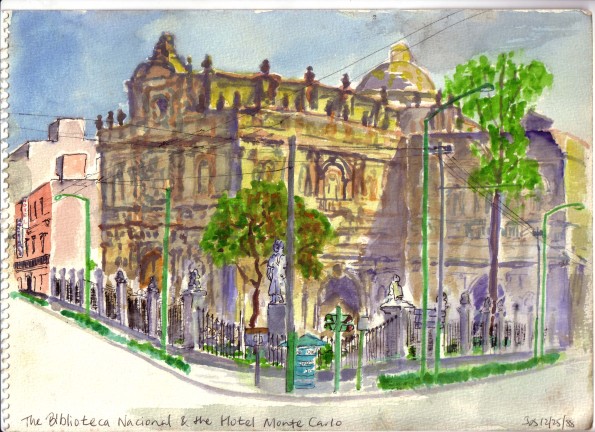
Esquina República de Uruguay e Isabel la Católica. Foreground: the former Augustinian convent and Biblioteca Nacional, and statue of Alexander von Humboldt, who slept on this block in 1806; background, the Hotel Monte Carlo.
I fell in love with the Spanish language when I was forty years old.
I took French for six years in high school and college and hated it. Jeanne Case, my French teacher at the Putney School, used to tell me, “Jean, you arre ‘aving mecca-nickel di-fickle-tees.” I memorized endless lists of verb tenses concerning unlikley situations in the past or future (this is stupid!) and with exception of Villon, Rimbaud and Appollinaire I hated the French poets.
Finally, at twenty-four, after I backpacked around Europe and the Middle East for six months, and my gender mistakes (C’est la change, monsieur, c’est feminin) sufficed the French to affect total incomprehension, I decided I was bad at languages. Plus ça change.
I got interested in Spanish around 1980 out of some geopolitical notion of continental solidarity. The Sandinistas had triumphed in Nicaragua, poets were coming back from there with glowing faces talking of workshops, the talleres, that were just like California Poets In The Schools but with adults, most of them recently illiterate. Meanwhile the Republicans were beginning to sponsor the Contra terrorists.
For years I had styled myself a poet of place in California, a watershed poet, writing about lichen and coyote-scat, following in the bootprints of John Muir, Gary Snyder and my mountain-climbing grandfather Oliver Kehrlein.
The terrain I was stomping made it increasingly obvious that the Spanishlanguage haunted the political meaning of earth not too far below the Anglo surface of North America.
Sure, the California Indians lived here first, Olema, Petaluma. I already had written more than my share of feather in my snakeskin headband, bearshit in gleaming in the trail poems. Spanish was scattered in names like desert varnish along my highways: Anza-Borrego, Aguas Calientes, Los Angeles, Ventura, San Joaquín, San Rafael, Corte Madera, Santa Rosa.
And this next part feels artistically embarrassing to admit, but I was plotting a science-fiction novel set both in Mexico and an alternate California in a timestream wherein Hernán Cortés took an arrow in the eye on his way out of Tenochtitlán on the Noche Triste and the Americas were never conquered by Europe. I had some good California scenes; San Francisco is Puerto Buenu, a tough harbor town with Ohlone suburbs. I figured I ought to do some research at the scene of the crime.
Later I spent a couple of years taking that meshugganah novel through interminable drafts, increasingly encrusted with local color, language and grudges to settle. All my women characters were smoking cigarillos: mirages of sexual triggers. I tangled myself impossibly in paradoxical time-travel intrigues. A few people bravely read it and liked it. But after all it seems I am not a novelist. I still want to write it just one more time. Sigh.
So I self-studied for a few months out of a book by Charles Berlitz (later spent two full years in the Vista College classroom of the incomparable maestra Carlota Babilón) and flew to Mexico City for the first time in April 1982. I got a room in the Hotel Monte Carlo a couple of blocks from the Zócalo on the Calle República de Uruguay because D.H. Lawrence stayed there in 1924 when he was thinking about writing The Feathered Serpent. That same afternoon I headed out to the Museo Nacional. Here’s my first jetlag-stunned uncomprehending ride on the Metro, emerging into the teeming daylight of Chapultepec:
*
more than I can take in
crush of people
train windows open
rushing through darkness
sweet little girl
clutching her blind mother’s hand
pyramids of chewing-gum
cunningly arranged
Indian woman in blue rebozo
taps rhythmically with a peso
on black iron railing
my Spanish withers
***
Rhapsodic were my inscriptions wandering in through the monumental, comprehensive Museo Nacional de Antropología. Paleoindian, Olmec, Teotihuacán, Toltec, Aztec, Maya, Nayarit and Sonora masks and gods and weapons and trade goods…
*
I can’t sing
my tongue is stone
hombre
limbs bound like reeds of years
snake’s coils disappearing,
spiralled down
*
Mictantecuhtli stole a bone
and then she couldn’t find it
*
That first night in the Monte Carlo I dreamed that I had better cease and desist writing poems to my third ex-wife and tacking them up on the doors of my father’s modest Connecticut summer cottage, because it’s making my girlfriend, or whoever I’m supposed to be in love with, nervous…
Later I lived entire summers in the Monte Carlo. One summer I managed not to speak any English for about six weeks until interviewed about my California Poets In The Schools projects by a reporter from the English-language Mexico City News. After ninety minutes of English my jaw ached…
Years after that I stood in front of the Stone of the Sun to teach a poetry lesson to Mexico City sixth-graders about their experience in the 1985 earthquake, in which maybe 55,000 people died (who’s counting?) and a tumbling shoddily-built parking garage fell and dealt a codazo to the Monte Carlo, once a convent attached to the Augustinian church on the corner, and braced on colonial foundations, remained standing and opened for business again after a year of renovations. I got to peek upstairs at my old room cracked and shaken.
Lonely and desolate in the morning I found my way to the blue-tiled Cafe Tacuba, situated about where Cortés had or had not taken that alternate arrow in the eye. Sor Juana Inés de la Cruz (1648-1696), the greatest Spanish-language poet of her half-century, gazed amiably down as I devoured arroz con dos huevos for 55 pesos. My depression had gone away.
Later, my steady breakfast cafe in the Centro Histórico was the Esla on Bolívar. Mario Ramírez, waiter, friend and teacher, would shout ¡Avena! to the kitchen when he glimpsed me stumbling toward the door and greet me across the formica counter with two copper samovars, one of potent thick coffee, one of steamed milk. “Estamos envenenado al planeta,” Mario confided. “We are posioning the planet.”
Porque la vida no vale nada, wailed a blind singer by the black cathedral fence. Years later, Becky and I stood in there off the Zócalo as the moon, Coyallxauhqui, eclipsed the sun, Tonatiuh. Night fell at noon and Venus glowed around the ghostly coronaat the head of a sequity of stars as patrol-k;lights spun blue and red and the crowd chanted ¡México, México! as if the astronomical portent were a soccer game in the Copa Mundial.
I made my way through sidestreets to a local bus for Tenochtitlán and the pyramids of Moon and Sun 1500 years old. Tramping the ruins, I felt oddly disconnected, probably mostly jet-lag:
*
all this is a surface
clay flutes muy baratos
dry season
I am not close to the heart of the pattern
*
At close of day, with heavy heart, I stood awaiting a bus to return to the megalopolis. One arrived, I swung aboard, but when I offered to pay everybody laughed with comments far too fast and fluid to catch. They took my money anyway and swung down at a corner, returning with armfuls of six-packs. It was the arqueólogos returning from a day of digging for simple implements representing people’s everyday lives in the middle-class barrios below the imposing pirámides of Teotihuacan.
We began to converse in a lively way over cracked-open cervezas, me fearless in then-execrable Spanish, using the present tense for all possibilities. When we got to the Centro the archeaologists invited me out for cena and más cervezas in the Bar Gallo.
The first Spanish joke I ever got (though it probably had to be explained to me) was when I showed them a photo of my then 13-year-old daughter, and Sergio cried out “¡Suegro!” (father-in-law)
There was a certain anti-Americanism in their politics, which I basically agreed with, the current malignant Alzheimer’s Republican president not being exactly, as I would later learn to say, un santo de mi devoción, and the upshot of our cena was that Sergio and Chucho invited me to return with them that very night to Tenochtitlan.
Why not? ¿Por qué no? From the Gallo in el centro we three hurried by Sergio’s parents’ apartment in Los Doctores where our pace slowed for polite and leisurely tasas of chocolate a la olla, then sprinted to the Monte Carlo where I gathered my things, thence at midnight por el Metro out the northern line to Indios Verdes, Green Indians, where we barely caught the very last bus for Tenochtitlan, squeezing painfully aboard. I’ve been packed that closely in since on the Metro or in second-class buses in Guatemala, but in my middle-class gringo existence this was the first time my personal space had been so absolutely stripped away, and I understood that if I died right then I would remain pressed upright by my neighbors.
In Sergio and Chucho’s dorm room we sampled some tasty local harvest of the benevolent herb. Then we wandered out in ancient darkness into the city once the most populous, powerful and beautiful in the Americas.
I had hurried past the feathered serpent stairway already in the ashen light of noon, surrounded by tourists from Japan and Pensecola. Now, at 3 am, we three mosqueteros ducked under the ribbons holding back the phantom erstwhile daytime crowds. The mouths of the plumed dragons were black cenotes of darkness. “Si te metes el brazo y dices una menteria, te lo va a comer,” Sergio told me. Whatever inanity I whispered must have been some kind of truth.
We clambered up the forbidden stairway between the bird-dragon heads of Quetzalcóatl into starry night. Sitting there under the overarching clouds of the galaxy, we talked largely, if rather brokenly on my part, about poetry and destiny. Stars fell from the sky. “Estrella errante,” whispered Sergio.
Over the ensuing three decades, my Spanish got a lot better (though there’s always an annoying remnant of that horse-muscled-jaw gringo accent). I’ve travelled largely throughout Latin America. My longest voyage 1995-96 nine months from Mexico to Chile and Argentina culminated in my participation in the Festival Internacioonal de Poesía in Medellín, Colombia and was chronicled in 131 eight-line stanzas in Caminante, which Gary Snyder blurbed “a major poem.”
I’ve published many hundreds of poem-translations from Spanish to English and poets have translated me. Sergio Gómez became perhaps the most respected Mexican archaeologist. Chucho Sánchez became a well-known adviser to Subcomandante Marcos and spokeman for the EZLN, the Zapatistas. Chucho showed up at my book party in San Cristóbal de Las Casas for Son Caminos, my poems translated into Spanish by many of the best poets in Mexico.
,
That night in Apri 1982 is when I set my foot on the Latin American version of the path, which as Antonio Machado tells us, is made by walking:
*
Caminante, son tus huellas
el camino y nada más;
Caminante, no hay camino,
se hace camino al andar.
Al andar se hace el camino,
y al volver la vista atrás
se ve la senda que nunca
se ha de volver a pisar.
Caminante, no hay camino
sino estelas en la mar.
My notes on a reading by the late great Santa Cruz poet George Hitchcock (1914-2010), on October 5, 1980.
Intensive detective work in my 28th blue notebook does not reveal the venue of the reading, only that I paid a 75-cent toll on that date to cross a bridge. San Francisco, probably. Somebody named Ivan, probably Argüelles, was the M.C. Evidentally it was in a bookstore-cafe. Could it have been the Blue Unicorn?
The first link takes you to a deeply-felt essay by Morton Marcus, who knew Hitchcock for decades and was frequently published in his seminal magazine kayak. Marcus never missed a kayak collating party. I never went.
Marcus narrates Hitchcock’s labor-organizing background in the thirties, when he wrote a sports column signed Lefty for the People’s World. He was famous for a 1957 colloquoy with the counsel for the House Un-American Activities Committee (HUAC), who got Hitchcock to admit he did underground work. “Of course I do! I’m a gardener!”
Hitchcock was a protegé of Kenneth Rexroth, and kayak published early work by current U.S. Poet Laureate Philip Levine, Charles Simic and Raymond Carver, among others. George and I collaborated a little bit years later; George spent every winter in La Paz, Baja California, where he became good friends with the poet Raúl Antonio Cota, whom I translated.
The Blue Unicorn reading:
[GH’s] first poem [refers to] Conrad Aiken, De Chirico, Black Diamond Bay. Antique clarity with psychological focus. GH sitting in a wicker chair, wearing a white Panama hat, smoking a [Cuban] cigar. Voice shoots out of space with authority. Sharp mixture of vivid and reduced, contexted and not.
*
Each April another government
evaporates at the Finland Station.
*
Unavoidably. The fact is. A little too Mozartean in the quilt poem. Insects restore Italian focus. Detail. Imagistic conviction reminds me of [L.A. standup poet] Jack Grapes, from quite another tradition.
His poems fall into pentameter, catch themselves, painterly. His dedication: attitude weakens “roseate wound” O god.
*
Sleep settles its lion
on top of a distant red tower.
*
Meanwhile, as the reading proceeded, two young Black men went into the attached cafe, robbed the register without a weapon, passed quietly through the rear of the crowd, applauded as Hitchcock finished a poem, and slipped out into the night. A flawless poem of its kind.
I’ll leave you with a George Hitchcock poem that I wish I wrote:
*
AFTERNOON IN THE CANYON
*
The river sings in its alcoves of stone.
I cross its milky water on an old log—
beneath me waterskaters
dance in the mesh of roots.
Tatters of spume cling
to the bare twigs of willows.*
The wind goes down.
Bluejays scream in the pines.
The drunken sun enters a dark mountainside,
its hair full of butterflies.
Old men gutting trout
huddle about a smokey fire.*
I must fill my pockets with bright stones.
 One of my more pleasant duties in my three years (1978-81) of herding cats as Statewide Coordinator of California Poets In The Schools was to attend the NCTE (National Council of Teachers of English) regional conference at Asilomar, on the Pacific shore near Monterey, California, and schmooze with the assembled potential clients seeking niches for poets in classrooms. The Asilomar NCTE’s had a truly distinguished set of presenters. My final year the keynote speaker was the renowned American mythologist Joseph Campbell, author of The Hero with a Thousand Faces. Here are my notes (necessarily framentary, explicated only when possible) on the truly unique take on Homer that Joseph Campbell presented at Asilomar on September 28, 1980. Any flat inaccuracies are undoubtedly mine rather than Campbell’s.
One of my more pleasant duties in my three years (1978-81) of herding cats as Statewide Coordinator of California Poets In The Schools was to attend the NCTE (National Council of Teachers of English) regional conference at Asilomar, on the Pacific shore near Monterey, California, and schmooze with the assembled potential clients seeking niches for poets in classrooms. The Asilomar NCTE’s had a truly distinguished set of presenters. My final year the keynote speaker was the renowned American mythologist Joseph Campbell, author of The Hero with a Thousand Faces. Here are my notes (necessarily framentary, explicated only when possible) on the truly unique take on Homer that Joseph Campbell presented at Asilomar on September 28, 1980. Any flat inaccuracies are undoubtedly mine rather than Campbell’s.
*
The function of religious institutions is to defend yourself against an experience of God.
Odysseus spent twenty years in passage through a violent male world where woman was booty. To return from that experience, to reach home again, he had to pass through a debriefing which included threats and teachers. The threats were monsters: Cyclops, the Laestrygonians. The teachers were nymphs representing three-fold aspects of the Great Goddess: Circe (Aphrodite), Kallypso (Hera) and Nausicaa (Athene). These three ladies were supposedly judged by Paris: a male put-down of the feminine.
The Old Goddess was animal as well as human. Pig, deer and water (in the Odyssey) are the powers of life. When she becomes human, the animal is her associate. Eating and drinking, we partake of the universe. The goal of all living is become transparent to the transcendent. The radiance of the transcendent permeates the world of time-space. Squirrel or saint on the shores of experience.
The function of art, of the poet, is to make things ONE, as opposed to war, this against that: DIVISION. That is the large movement that works in Homer. Male and female versions at work and at loggerheads in the text.
Aphrodite, born on the half-shell, out of the ocean, was the cause of the whole thing. Gaea was born inside the father-womb of Uranus. Uranus was so tight, so uptight, that his children couldn’t get out. Chronos was the eldest child, took a sickle and casbtrated his father, throwing his genitals into the sea. Aphrodite was born from thence: this version is another male put-down.
The Goddess was there first! She is time and space and logic. We are bound in those realms, and she is the binding circle. She is being and act, woman and man, love and war together, the ground of being, always naked. There is a bird in her hair: the Holy Ghost. And a snake too. They are the messengers of Aphrodite. The bird is released spirit, the snake bound to earth. The serpent of the moon shed its skin to be born again. Significance of the snake reversed in Judeo-Christian tradition.
Aphrodite as the mother, the fingers of a baby on her nipple: Eros. Her other male associate is Hermes, with wings in his hair, wearing a white suit at the gate of death, he opens the way. Hermes the dog and the three goddesses. Hermes is Mithra, with a stocking cap. The sun. Christmas is Mithra’s birthday.
Paris is a lounge lizard, an Indo-European latecomer. Accosted by Hermes, he sets up an Atlantic City beauty contest between the goddesses with their three circles of destiny. Another inflexion: the three Eumenides. Hermes tells you: gotta face ’em. Hermes makes you make up your mind.
In the male tradition, Aphrodite offers Helen as a bribe to Paris. Paris abducts Helen. Menelaus objects: “Helen in my property.” Achilles and Patroclus are draftees. Odysseus, newly married, tries to act crazy for the draft board, hitching incongruous animals to his plow. Agamennon is a tough shrink: he sets Telemachus in the furrow. Odysseus flinches from plowing under his own and only son. “You must be sane,” concludes Agamennon. Catch-22.
There’s no wind for the fleet, so the male priest Calchis declares they must sacrifice Iphigenia. Clytemnestra sees her daughter taken away, with nefarious consequences. Clytemnestra has had bad press. In the female tradition, Artemis recues Iphigenia. Homer didn’t know this.
The Iliad among the Dorians is contemporary with Judges and Joshua among the Hebrews. Jephthah also sacrifices his daughter Iphis. We have both traditions. That’s why we’re in such a mess.
Achilles and Agamemnon in a spat over Briseydis: who gets the blonde? Achilles sulks in his tent. Soldiers in their free time, playing chess. Come on, come on!, coax his friends. And the Iliad begins: I sing the wrath… Patroklus killed, Achilles goes to war for personal revenge, a bad reason if you want to keep your soul clean.
Unlike the Old Testament, there are personal heroes on both sides. Achilles is a sports hero: Joe Namath. Hektor is a real human being. Hektor will be no match for Achilles. Andromache knows it and tells him not to go. Parallel here to Arjuna and Krishna. Astyanax, their son, “little star,” is afraid of his father’s helmet: bad omen for the male side. Achilles drags Hektor three times around the walls of Troy to his death, a magical act, unwinding the walls’ magic. Athene suggests the strategem of the Trojan Horse. The classical tradition survives and is transformed in Europe: the God become heroes. Virgil with Aeneas. Arthur.
Christianity is more Greek than Hebrew. The swan descends to Leda, the dove to Mary.
Helen, taken back by Menelaus, ends up in Egypt. Agamemnon is killed by Clytemnestra, Clytemnestra by Orestes. Is he his mother’s or his father’s son? Two mythologies clash.
Apollo purifies Orestes by pig sacrifice: domestic cult. Tusks of the pig: two crescent moons, blackface between. The blood of the pig puts the Eumenides to sleep. Circe’s animal is the pig. Odysseus meets his son Telemachus in the swineherd’s shelter.
Sword in hand, Odysseus, a wary crazy Vietnam vet, sails his twelve ships first north to Ismarius, where they sack the town, rape and pillage. Boreas, the North Wind, then blows him south to Africa, to the land of the Lotus Eaters. The magical experience, LSD, the shore of dreams. California.
Odysseus goes ashore on the Isle of the Cyclops with the solar number of twelve men. Entering the cave, the narrow gate, he confronts Polyphemus the one-eyed, a reduced negative form of power facing within. Asked who are you? he responds “No man,” divesting himself of secular fame as he enters the underworld.
Polyphemus eats six men, three sheep, nine in total, a goddess number. The sharpened beam that blinds him is a convenience from the magical realm described in gory detail. When he cries out and tells his friends No man is killing him, they tell him: “keep it to yourself.”
The central problem in the Odyssey is how to coordinate the adventures of the solar hero and the woman who weaves the world. Odysseus is the Ram, the Sun-God, on his way to the Island of the Sun, to which he is introduced by Circe. Penelope weaves and unweaves like the moon. The lunar and solar calendars mesh in a twenty-year cycle. The moon is life throwing off death, bound to the wheel of the world, reincarnation. The sun casts no shadow, the radiant sign of life disengaged from time, nirvana. Locate the eternal light. Am I consciousness or body? You don’t have to quit life to get to the sun. The full moon, the mid-point in man’s life, the 35th year, Yeats, A Vision, Dante.
Aeolus of the winds, Stromboli, the newspaper office in Joyce’s Ulysses, spirit that has left earthly character behind: the danger of inflation, puff yourself up. The temptation of Jesus, to turn bread into stone, to convert spiritual kingdoms into economics and politics. Alternatively, cast yourself down. Given a wallet full of winds, Odysseus falls asleep, his men open the packet. “We blew it.”
Ugly adventure among the Laestrygonians, manic depression, cannibalism the ultimate depressant. We are all flesh, and that’s all. Throw rocks at them, they sink eleven of twelve shiops, more divestiture.
Circe of the Braided Locks, weaving appearance, weaving Maya. Odysseus, you’re in trouble now: a woman whom you can’t push around. Male brute force against woman’s magic arrow. The Iliad is ruled by Zeus and Apollo, the Odyssey by Hermes.
Odysseus undergoes two initiations: that of the Underworld and that of the Lord of Light, Circe’s father. The underworld is the ancestral world where all bodies are the shadows of spirits.
Tiresias saw two serpents copulating, stuck his staff between them and it made a woman. Zeus and Hera, arguing about who enjoys sex more, man or woman, ask Tiresias, who knows both, and he answers “woman, of course.” Hera took this badly and struck him blind. Angry because she could no longer say, “I’m only doing this for you, dear.”
The power of prophency, the inward eye. Odysseus realizes male and female are one being, one androgyne. Next, please. Circe predicts obstacles. Scylla and Charibdis, the fine craft of bondage.
The Island of the Sun, taboo against killing the oxen: a warning against spiritual materialism. Odysseus again distracted, falls asleep, his men eat the oxen, followed by complete shipwreck disaster, only Odysseus is left. Ishmael after the wreck of the Pequod.
Odysseus fails to pass the sundoor, he is thrown willy-nilly toward Penelope again via Kallypso. The function of women in relation to the Hero: knock him down and put him together again. This is not the Hindu transcendence of the world, but living in the world with knowledge of the light.
Seven years have passed, says Hermes, it’s time. Odysseus is washed ashore in the land of the Phaecians. Nausicaa, the third goddess, is doing laundry, and tossing a ball (goddess roundness activity). She alone has the courage to confvront the phenomenon of a naked gentleman. In her role as Athene, Nausicaa brings him home to Daddy. “Wal, stranger, where ya been?” “I’m Odysseus.” He returns through the threshold, regains his secular identity.
Another mysterious passage: Odysseus falls asleep on shipboard, is left asleep on the shore of Ithaka.
Telemachus is the young man of 21 (three times seven, goddess numbers). Athene tells him : Go find your father. First he visits with Nestor, the old football coach. Then son and father meet in the swinehard shelter in Arcadia. Odysseus arrives as the Tramp. “Don’t mention my name.” Old Nurse is the first to recognize him by the scar on his though from the boar’s crescent goddess horns. Adonis was slain by a boar. Buddha died from eating pork. And the Old Dog.
Bending the bow through the twelve signs. Odysseus is the sun; the suitors, the stars. Final reconciliation with Penelope. Leaving the bearded blind Poet on the shores of experience.

